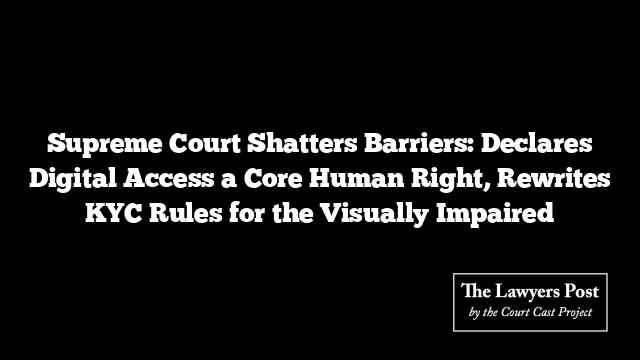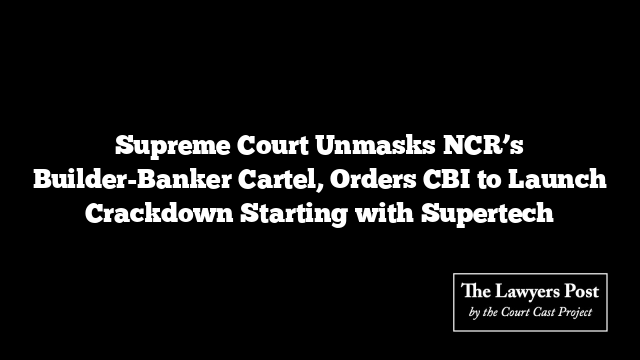In a bold reshaping of digital rights, the Supreme Court has declared that access to the digital world is not a privilege—but a fundamental right under the Indian Constitution. In a powerful verdict, the Court swept aside outdated processes, issuing 20 sweeping directives to make the Know Your Customer (KYC) system truly accessible to acid attack survivors, the visually impaired, and those with severe facial disfigurements.
Sitting on the Bench were Justices JB Pardiwala and R Mahadevan, who delivered a judgment that stretches the very definition of the right to life under Article 21, fusing it with the necessities of today’s digital age. Articles 14 and 15—guaranteeing equality and protection from discrimination—formed the backbone of the ruling, as the Court emphasized: no citizen should be left behind at the gates of technology.
“The era demands it,” the Bench stated sharply. “Economic opportunities flow through digital rivers. When access to these rivers is blocked for the vulnerable, constitutional guarantees stand violated.”
At the heart of this seismic ruling was the story of a young acid attack survivor who, in 2023, found herself entangled in the cruel red tape of a digital KYC process. Her attempt to open a simple bank account spiraled into a bureaucratic nightmare when she was asked to “blink” before a camera—an action she could not perform due to injuries.
The requirement, rigidly enforced under RBI guidelines to verify a customer’s “liveness,” barred her from completing the process. It was only after a storm of outrage on social media that the bank grudgingly made an exception. But her case, as the Court recognized, was far from isolated.
The public interest petitions that triggered this ruling painted a bleak picture: countless survivors, already battling societal prejudice, locked out of the digital economy by technicalities designed without them in mind.
The Court’s 20-point plan now demands a complete overhaul. Banks, financial institutions, and digital service providers must revise KYC processes to embed accessibility, dismantling the hidden walls that have excluded many for too long.
A formal copy of the judgment is still awaited, but its spirit is already unmistakably clear: in today’s India, the digital divide is not just about bandwidth or devices—it’s about dignity.
The petitions were fronted by Pragya Prasun, herself a symbol of resilience, with a legal team determined to make the digital world a little less cruel. The Supreme Court has now answered their call—not with sympathy, but with sweeping constitutional force.





